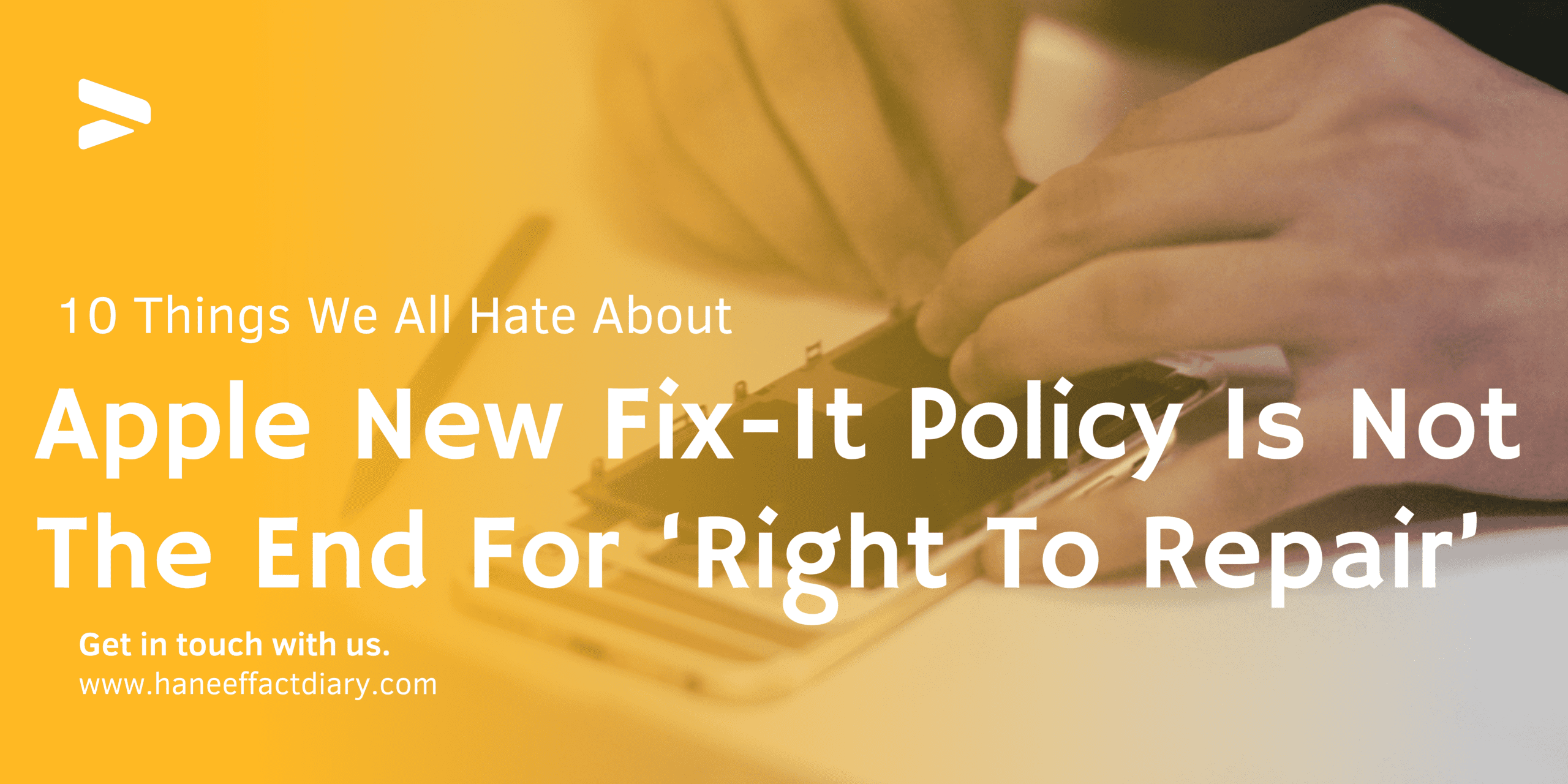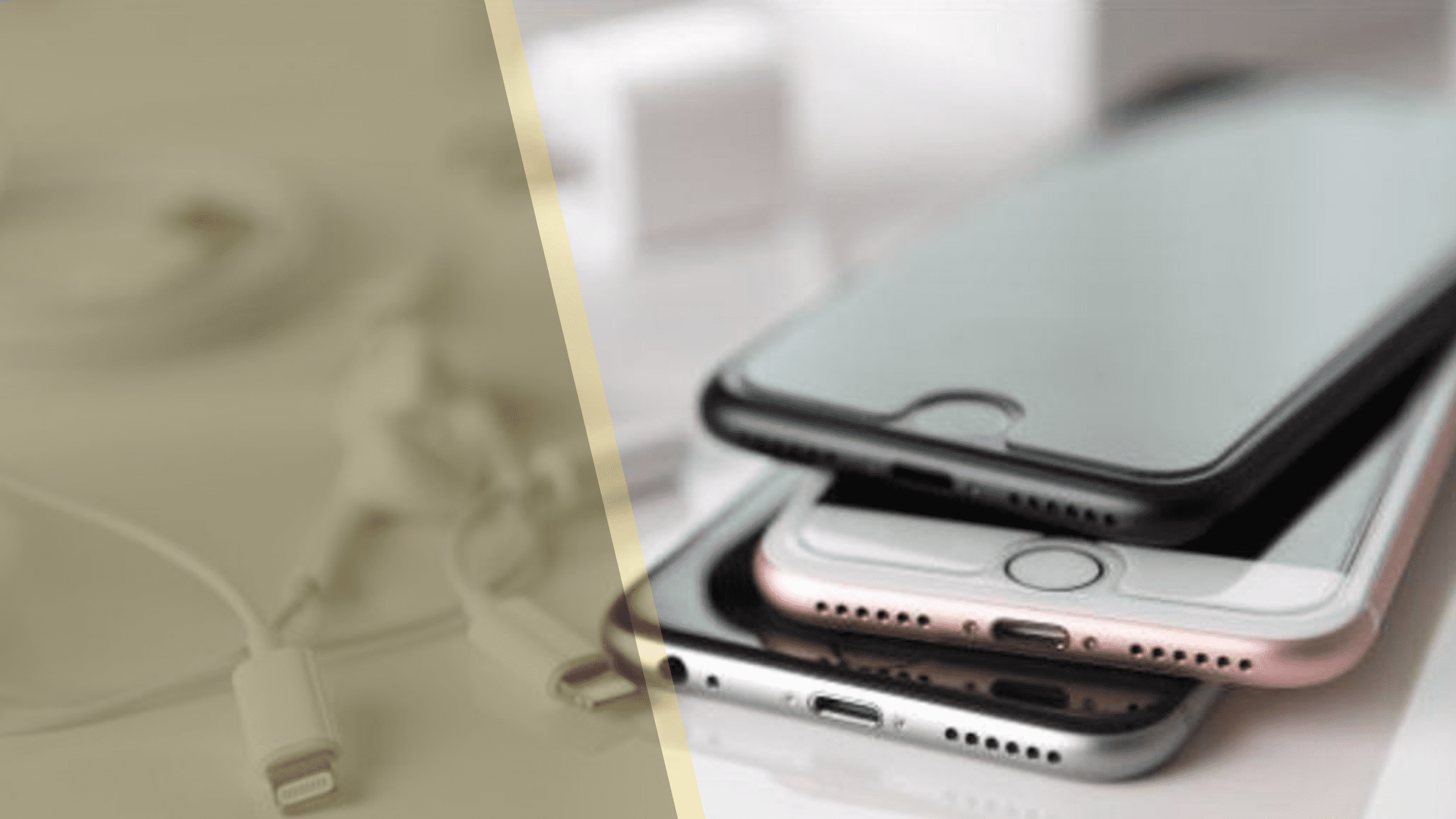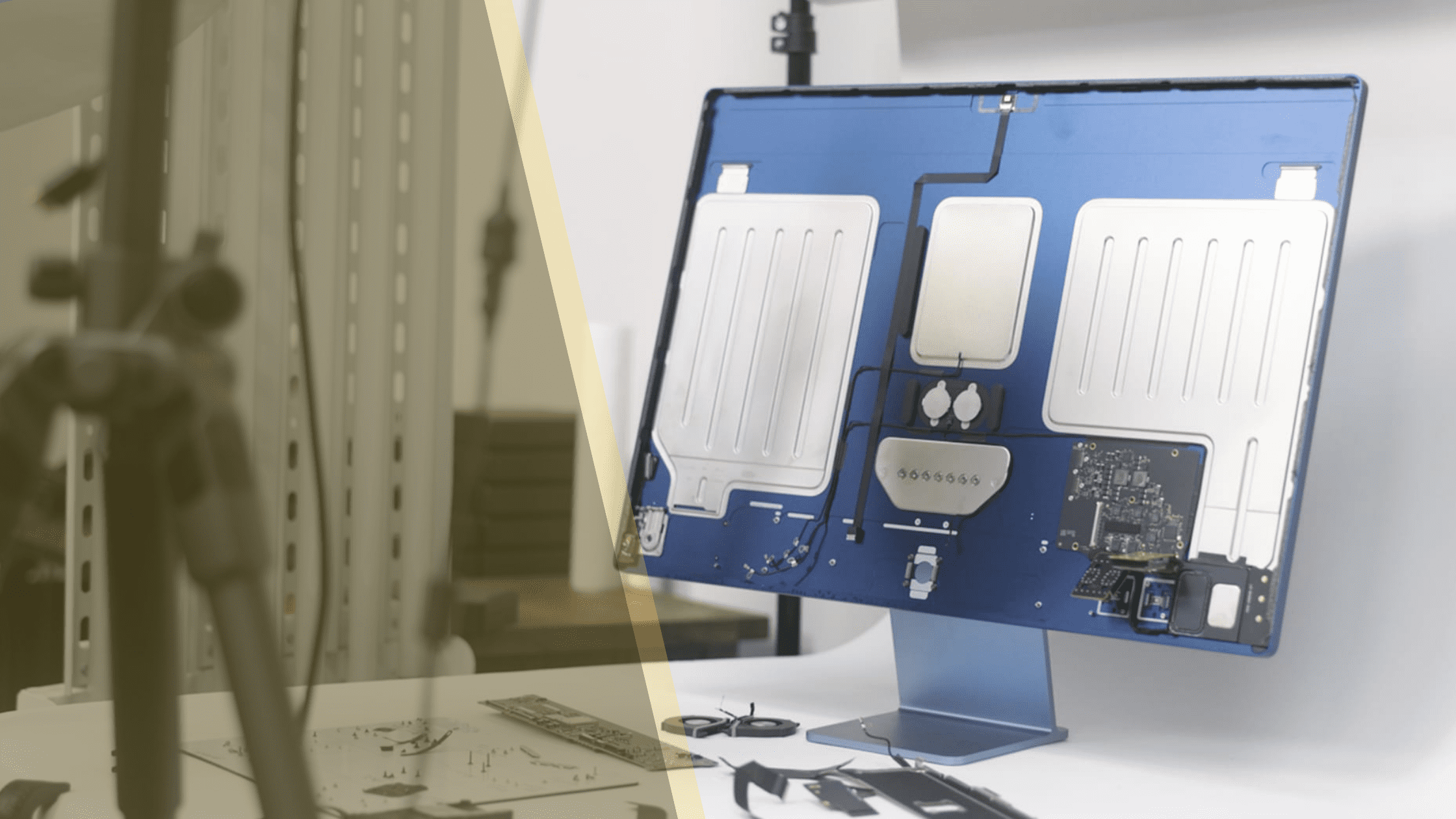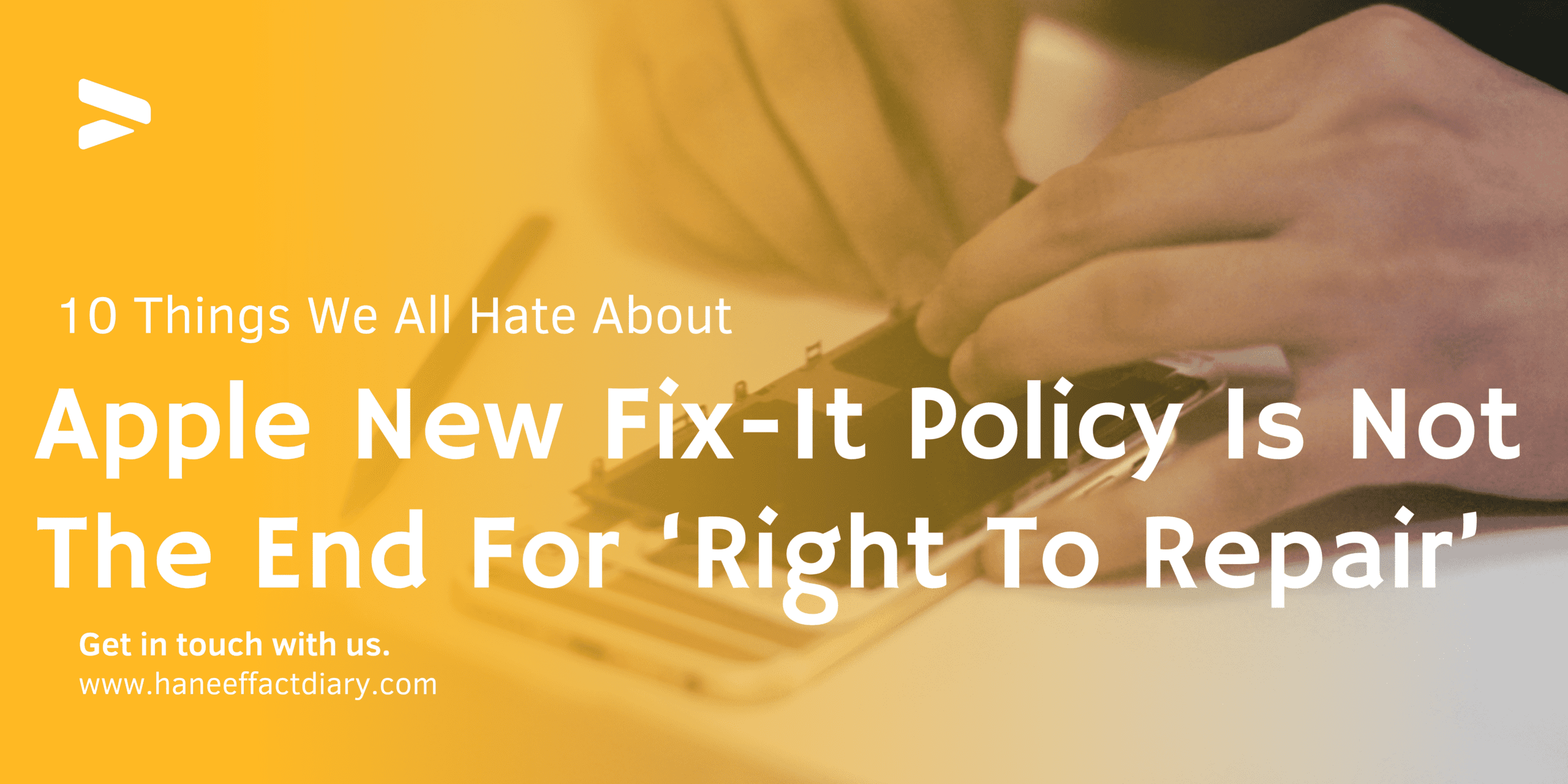
Apple New Fix-It Policy Is The End For ‘Right To Repair’
Apple New Fix-It Policy, It was an exciting day at iFixit in November 2021 when Apple announced its decision to release genuine screen and battery replacements and service manuals for iPhones.
This is absolutely crazy. I mean, many of us thought we would never see the day. This push for consumer repairs from the previously reluctant Apple could have a major impact on the ‘right to repair’ landscape.
Right to repair is a movement that supports reforms that make sure that everybody has what we need to fix our modern equipment. Everything from tablets to toasters to tractors. I have a friend who’s a farmer down the road here.
Also Read: Here’s What No One Tells You About What Does Apple Do With Old iPhones? 2022
Apple and The Mechanic Transmission
He has a full-time mechanic that works for him, and the mechanic tells me if they have a transmission go out in their F-150 pickup, they can change it. If they have the same transmission go out in their tractor, they can’t.
They can physically install the transmission, but then they need a special laptop to press the button to make it work, and John Deere won’t give them the tooling. Despite the recent achievements, there is still a lot of work to be done.
27 states have or are working on right to repair legislation, and President Biden signed an executive order in the summer of 2021, encouraging the FTC to use its authority to address, quote, unfair anti-competitive restrictions on third party repairs or self-repairs of items such as the restrictions imposed by powerful manufacturers that prevent farmers from repairing their own equipment.
This has not been a partisan issue. We’ve had Nebraska as one of the first states that got on board working on agriculture right to repair language. Massachusetts has led the way with the automotive right to repair. They’ve also been very active with electronics right to repair.
Also Read: Everyone Talks How Sephora Revolutionized Makeup Consumption? 2022
Apple and Hospital Focused Medical “Right to Report”

The state of New York, passed the Senate overwhelmingly this year, a bipartisan vote. California introduced a hospital focused medical right to repair bill this year, so it’s really a spectrum of states across the country, Republicans, Democrats coming together to work on the common sense issue.
We spoke with Kyle Wiens at iFixit’s headquarters before Apple’s big announcement and caught up with him after the announcement over Zoom. I got to find my webcam. We’re seeing a huge amount of momentum where more and more manufacturers want to do the right thing. They want to get out in front.
They want to be… they don’t want to get caught by the legislation. Wiens, the co-founder and CEO of iFixit, started the business about 18 years ago out of frustration with Apple. iFixit started in the dorms at Cal Poly here in town.
I was trying to fix my laptop because I dropped on the power plug, and it was damaged, and I thought, ‘well, I can open this up and fix it myself.’ Turns out I was woefully mistaken. They’re very complicated. It’s hard to take some of these things apart, and I couldn’t find instructions anywhere.
Also Read:The Rise Of The Robotic Working Dog 2022
Apple and the Information Taken off the Internet

So I bumbled my way through the repair, and I learned afterwards that the information had been online that Apple’s lawyers had taken it off the internet. They sent DMCA takedowns to ban all of us from knowing how to fix our things. And that was frustrating. So I decided, ‘well, now I’ve done it once, I know how to take it apart.
I’ll take it apart again. We’ll take some pictures, put them online.’ And the rest is history. iFixit has been a key component in the fight for the right to repair legislation. In the last year, Wiens and his allies have seen some major successes. We’ve had bills introduced in 27 different states.
The U.S. Federal Trade Commission, released a landmark report this year analyzing the manufacturer objections to repair and saying that there is no substantive reason for any of their arguments against local repair.
This report also points out that many Black-owned small businesses are in the repair and maintenance industry, meaning anti-repair practices can disproportionately affect small businesses owned by people of colour. For many consumers, a cracked phone screen or a dying battery in a laptop is top of mind for repairability.
In 2017 alone, smartphone users broke more than 50 million phone screens. And Apple, America’s favoured smartphone manufacturer by far has been notoriously picky about who gets to repair those devices. Apple is always trying to do things to stop you from fixing your own stuff.
They throw every impediment they can. They don’t share repair information, they refuse to sell parts, they use special screwdrivers on the outside of your phone. When you get a battery kit from us, it comes with a screwdriver. It comes with everything you need to do the repair.
Also Read: 7 Reasons Why People Like Bitcoin, Crypto For Beginners.
The Recent Announcement Release Repair Data With Genuine Parts

That all changed with a recent announcement from the company saying it will release repair data along with genuine Apple parts and tools for customers to repair their own products, starting with the iPhone 12 and iPhone 13 lineups in 2022. That’s a total sea change.
Apple has never been willing to do that before, and that’s what legislation is driving… the right to repair legislation we’re talking about says you’ve got to make parts, tools and information available to independents. The products that we are making in, like the 1960s and 70s, as the assumption was that these are going to be super long-lasting lasting, durable.
Somehow, in the last 20 years, companies started, like, putting all these whiz-bang nonsense features and things that then break and cause the thing to break down. That may be worked for a while, but the kind of bubble is kind of pop down that. It feels like a course correction, and the public was pretty far out ahead of the manufacturers.
But now the manufacturers have started to realize that and have started catching up. But Apple is only one company representing one sector of the right to repair movement. Wiens and Proctor want people to be able to repair everything they own. Right to repair legislation across the country is tackling tractor repairs, medical equipment repairs and more.
Covid hit and shut down most of the state legislatures across the country and also highlighted the medical rights to repair as a really urgent problem. We wrote a report in 2020 called Hospital Repair Restrictions about how hospitals had ventilators they couldn’t use because they couldn’t access the proprietary repair materials.
Manufacturers were refusing to give them The most vocal opponents to the right to repair legislation have been Apple and John Deere. If you look at John Deere, they forecast… a large number of their corporate profits come from their service network, and if they can monopolize the service economy and move more of that onto their balance sheet and off of the local mechanics, they will.
But that has a disruptive impact on local economies. In a statement to CNBC, John Deere said, ‘reprogramming software is needed in less than two per cent of all repairs, meaning that customers can self-repair nearly every part of their machine.
We do not, however, support the modifications of embedded software as they could pose significant health and safety risks to customers and the environment in line with federal and state standards.’
And Tesla has also been criticized for not releasing parts or service manuals, leaving owners reliant on Tesla to service its cars, although some states have passed laws to change that. Apple has been joined by Microsoft and Dell, among others, in upping its repairability game.
Also Read: Top 7 Common Prejudices About Why Rent Is Rising In The U.S.
The Repairable Modular Concept of Dell

Dell announced a new, super repairable modular concept laptop, the Luna. And you know, there’s been a couple of other companies like this company called Framework, which launched the most eminently repairable laptop you’ve ever seen. And now I feel like that’s put pressure on some of the other laptop manufacturers.
We’re really jazzed about collaborating with Microsoft. Microsoft has really turned a page from products that were glued together, were very hard to work on. Now they’ve said that they are making a public commitment to repairability. They’re rethinking the designs of their products.
They’re starting to release repair tools. They signed the commitment to make tools and information available to consumers by the end of next year. So we think all of those are exact steps in the right direction. We just have to make sure that they follow through.
Apple’s initiatives, among other tech giants, show great progress, but there is still a lot of work to do to set us up for a fully repairable future. We should just be wary of, unnecessary whiz-bang features that could ruin the product’s longevity.
Bottom Line
We need to get smarter about reverse logistics, which includes doing all the things that keep things out of the recycling stream so that the recycling stream can be more efficient and effective.
I hope that we can get to a future where the default is products are repairable and consumers don’t have to worry about it. Right now, you buy something expensive, is it going to come with replacement parts?
Are you going to be able to get it repaired in five years? It’s a total unknown, and that’s a shame. Consumers should have certainty. So absolutely, we need to push for a place where manufacturers get to a default that’s at least reasonable.




